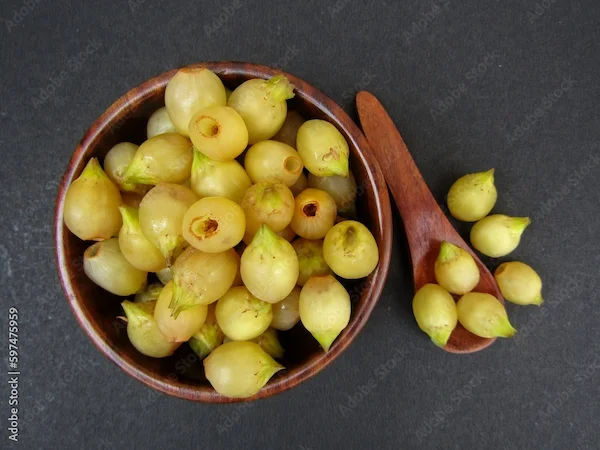Seasonal Change Health Tips to Consider
Learn essential health tips to navigate seasonal changes. Discover how to boost immunity, prevent illness, and maintain overall well-being during weather transitions.

Written by Dr. Vasanthasree Nair
Reviewed by Dr. Rohinipriyanka Pondugula MBBS
Last updated on 18th Aug, 2025

Introduction
Seasonal changes bring shifts in weather, temperature, and environmental conditions, which can impact our health in various ways. From cold winters to humid monsoons and scorching summers, each season presents unique health challenges. Understanding how to adapt to these changes can help you stay healthy and prevent common seasonal illnesses.
How Seasonal Changes Affect Your Health
Our bodies take time to adjust to new weather conditions. Sudden temperature fluctuations, humidity, and exposure to allergens can weaken immunity, making us more prone to illnesses like colds, flu, allergies, respiratory infections, and digestive issues. Seasonal changes can also affect mood, skin, and energy levels.
Consult a General Physician for the best advice
Common Seasonal Health Problems
Weather changes can trigger various health issues. Here are some common seasonal health problems to watch for:
1. Respiratory Infections – Cold, flu, cough, and sinus infections are common during weather transitions.
2. Allergies – Pollen, dust, and mold can trigger allergic reactions like sneezing, itchy eyes, and skin rashes.
3. Dehydration & Heatstroke – Summers can lead to excessive sweating and dehydration, while extreme heat may cause heatstroke.
4. Joint & Muscle Pain – Cold weather can worsen arthritis and muscle stiffness.
5. Digestive Issues – Foodborne infections and stomach upsets are common in monsoons due to contaminated water and food.
6. Skin Problems – Dry skin in winter, fungal infections in monsoon, and sunburn in summer are frequent concerns.
Seasonal Health Tips for Every Weather
Each season brings its own health challenges. Here are seasonal health tips to keep you well in any weather:
1. Winter Health Tips
Stay Warm – Layer clothing to prevent cold-related illnesses.
Hydrate Well – Drink warm fluids like herbal teas and soups to keep the body hydrated.
Moisturise Skin – Use lotions to prevent dryness and cracking.
Boost Immunity – Consume vitamin C-rich foods (oranges, lemons, spinach) to fight infections.
Exercise Indoors – Cold weather can make outdoor workouts difficult; try yoga or home exercises.
2. Summer Health Tips
Stay Hydrated – Drink plenty of water, coconut water, and fresh juices to prevent dehydration.
Eat Light & Fresh – Include fruits (watermelon, cucumber) and avoid oily, spicy foods.
Protect from Sun – Use sunscreen, wear hats, and avoid direct sunlight between 11 AM–4 PM.
Wear Breathable Fabrics – Cotton clothes help keep the body cool.
Avoid Heat Exhaustion – Rest in shade, use cooling techniques like wet towels if overheated.
3. Monsoon Health Tips
Avoid Street Food – Prevent waterborne diseases by eating home-cooked, fresh meals.
Keep Mosquitoes Away – Use mosquito repellents and nets to prevent dengue and malaria.
Dry Feet Properly – Fungal infections thrive in damp conditions; keep feet clean and dry.
Drink Boiled/Filtered Water – Prevents stomach infections.
Boost Immunity – Consume turmeric, ginger, and honey to fight infections.
4. Spring & Autumn Health Tips
Manage Allergies – Keep windows closed during high pollen times, use air purifiers if needed.
Stay Active – Pleasant weather is great for outdoor walks and exercises.
Eat Seasonal Fruits & Veggies – Helps the body adjust naturally to the changing climate.
General Tips for All Seasons
Some health habits are beneficial year-round. Here are general tips for staying healthy in all seasons:
Maintain Hygiene – Wash hands frequently to prevent infections.
Get Enough Sleep – Helps the body recover and strengthens immunity.
Exercise Regularly – Boosts overall health and helps adapt to weather changes.
Eat a Balanced Diet – Include proteins, vitamins, and minerals to stay strong.
Stay Updated on Vaccinations – Flu shots can help prevent seasonal illnesses.
When to See a Doctor?
If you experience:
Persistent fever, cough, or breathing difficulties
Severe dehydration or heatstroke symptoms
Worsening allergies or skin infections
Digestive issues lasting more than 2-3 days
It’s best to consult a doctor for proper diagnosis and treatment.
Final Thoughts
Seasonal changes are natural, but with the right precautions, you can minimize their impact on your health. By staying hydrated, eating well, and maintaining good hygiene, you can enjoy every season without falling sick. Listen to your body, and seek medical help if needed. Stay healthy, stay happy!
Consult a General Physician for the best advice
Consult a General Physician for the best advice

Dr. Sandhya Chandel
General Physician/ Internal Medicine Specialist
16 Years • MBBS, MD (Int. Med.), IDCCM
Bilaspur
Apollo Hospitals Seepat Road, Bilaspur
(100+ Patients)

Dr. Mohamed Azeem
General Physician/ Internal Medicine Specialist
2 Years • MBBS,MD(Internal Medicine) CCEBDM
Karaikudi
Apollo Hospitals Karaikudi, Karaikudi

Dr. Anand Ravi
General Physician
2 Years • MBBS
Bengaluru
PRESTIGE SHANTHINIKETAN - SOCIETY CLINIC, Bengaluru

Dr Syed Mateen Pasha
General Physician
2 Years • MBBS
Bengaluru
PRESTIGE SHANTHINIKETAN - SOCIETY CLINIC, Bengaluru

Dr. M L Ezhilarasan
General Practitioner
6 Years • MBBS
Visakhapatnam
Apollo 24|7 Clinic - Andhra Pradesh, Visakhapatnam




